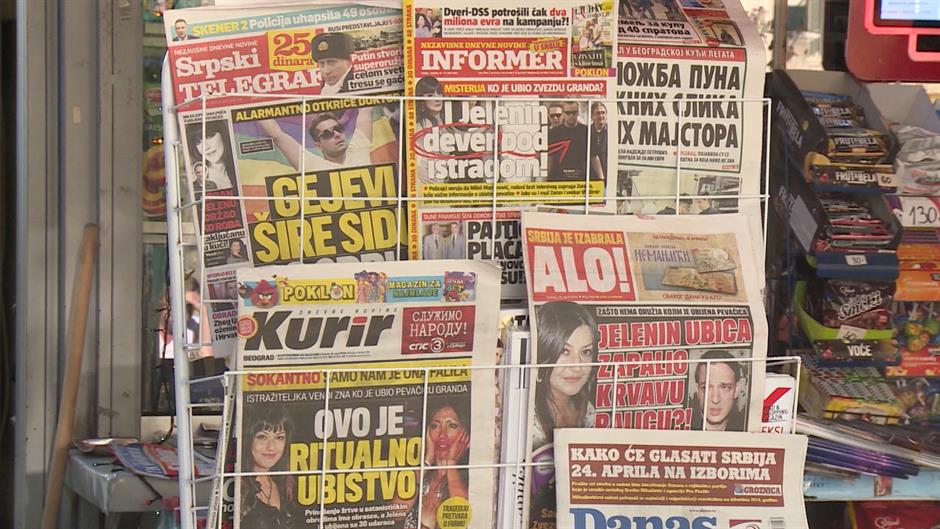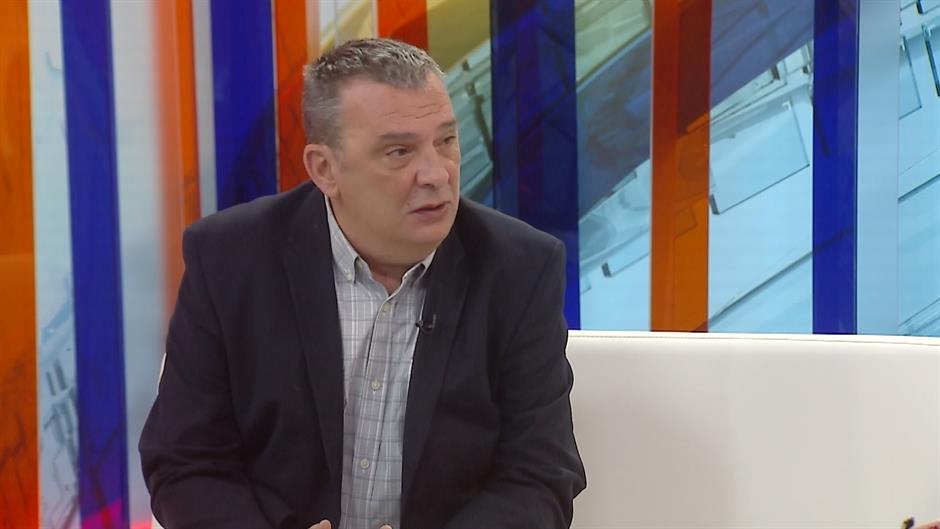SARAJEVO, 17.04.2018.-Taking into consideration that advertising in Bosnia and Herzegovina has been defined through various set of laws (Law on Consumer Protection, Law on Communication, Trade Law, Law on Food, Law on the Restricted Use of Tobacco Products, Law on Medicaments, Law on the Ban on Advertising) and regulations under the competence of the Communication Regulatory Agency of (BiH) (The Code on Commercial Communications), the passing of the Law on Advertising has emerged as necessary and required tool. However, passing this Law (Law on Advertising) shall not sort out numerous problems regarding the further destruction of media and advertising market field in Bosnia and Herzegovina.
Comparing with advertising markets in neighboring countries, commercial advertising market in BiH is still considered vastly undeveloped. Bearing in mind that there is a significant number of media houses in BiH that compete with each other, in order to receive modest financial budget amounts of money, advertising market in Bosnia and Herzegovina is hence often referred to as “the little pond with too many crocodiles around”. Specificity of transitional countries is seen through the weak development of the advertising structure in the market, with TV commercial advertising still dominating in this particular field and BiH is no exception here. There are many reasons why media and commercial advertising market in BiH have been on a decline in BiH, comparing to neighboring countries. One of the biggest problems in the process of media development of media industry is the unsolved problem and issue of commercial advertising in media programs from neighboring countries that re-broadcast their program through cable, satellite and IPTV signal, which altogether results in budget reducing of the international advertisers in BiH media market. According to official information of audience measurement (from March 2017) implemented on the entire population in Bosnia and Herzegovina, the total share of viewership of local TV stations in total viewership is less than 50%, while the share of local TV stations for specific target groups that represent most interesting groups to international commercial advertisers is merely 40% (Information source: Audience Measurement doo.). If we make a comparison here, the information regarding the audience viewership of TV stations in neighboring markets, the domination of local TV stations is very obvious. According to official audience measurement (also from March 2017) in the Republic of Croatia, the total share of local TV stations viewership in total viewership scope is more than 80% (Information source: AGB Nielsen).
First entities were among the first to experience the reduced money flow from commercial advertising in Bosnia and Herzegovina were printed media houses. Apart from this problem, they also faced declined public buying power. Due to significant diversity and different interests in the segmented media market in BiH, the decline had thus become evident in other media branches as well. In an unequal market competition of media houses in BiH, the commercial advertising prices displayed a key factor with companies as far as decision making of the budget dispersing system is concerned, and this budget was on a decline from year to year.
Due to the lack of required and necessary financial means, journalist and other media staff decide to accept very poor working conditions which results in a poor quality of media reporting and production of media contents, creating thus media dependability from wide political influences. The survival on the market of a great number of media houses, as a result of a decreased incomes deriving from commercial advertising, has been conditioned by editing deference by political and business officials at the state, Entity or local governing levels. Media houses should promote a pluralism of opinions, instead of being used as a mean of their owners whose main goal is profit making. The way present media houses fulfill their democratic role depends mainly on economic and political factors that shape media environment and media market.
In order to avoid the situation where media houses work less for the general public interest and work more for the interest of certain political and economic lobbies, it is crucial to pass the law that would, (to some extent), separate interests of media entrepreneurs (owners) from media contents, political interests and ties with media owners with different lobbies. Unlike developed media markets where liberal business derived from respecting and obeying legal procedures and market rules, the case in Bosnia and Herzegovina has been quite different.
Local media houses should, as part of the Regulatory framework, promote media independence and economic efficiency. Media business operations control and the implementation of fair – based rules by the competition and commercial advertising rules, is indeed necessary in order to establish the balance between media pluralism and free media market.
There are unregulated occurrences in the media market, including vertical integration between media and other associated commercial advertising market parties, distribution networks or telecommunication operators. Lack of warranties, as far as the ownership transparency over media houses and other associated commercial advertising market parties is concerned, which disabled the review regarding the nature of the relationships and their influence on media houses integrity. Legal provisions limiting foreign ownership over media houses turn out to be inefficient in this particular case as well.
Passing the set of laws and regulations in Bosnia and Herzegovina does not necessarily mean their implementation and application at once. There are many cases in reality to support this thesis. One of these cases include the case of ignoring and disrespecting the decision passed by the Competition Council of Bosnia and Herzegovina regarding the duties and obligations of owners of specialized sport TV channels „Sport Club “to ensure and allow other TV channels to operate under same conditions, which resulted in an unequal positions of other parties involved in this process, thus creating and encouraging illegal competition in this market area.
The question of transparency of ownership and regulation of eventual integrations, between media houses and other associated commercial advertising market parties (commercial advertising agencies, research agencies for audience viewership measuring, including viewership on radio and internet websites), distribution networks or telecommunication operators, represents the key and crucial issues here, especially during the period where media houses owners (entrepreneurs) hide behind various offshore companies registered abroad. Therefore, there is a significant possibility of con- flicts of interest occurring in BiH in this particular field, including many frauds in media and commercial advertising market field deriving as a result.
Although the aim of the Strategy of transfer from analogue to digital ground radio diffusion that had been accepted and passed was to provide minimum 85% of the population in BiH to 1 Oct 2011, with digitally revived ground TV signal, Bosnia and Herzegovina still remained as the only country where the process of digitalizing has not been completed yet.
The persistence of public broadcasters in Bosnia and Herzegovina has reached its critical stage considering that there has not been political will in order to find the solution for stable financing. The situation for public broadcasters in many ways define the general situation in the market and media freedoms and liberties. The decision passed by the CRA Council from September 2013, regarding the passing of the amendments of Codes on commercial communications, displayed an outstanding sample, regarding this particular issue. By passing this Decision, the Regulator (CRA) was allowed to reduce the time limit for commercial advertising use (during the programs broadcasted by public services) from six to four minutes per hour.
Despite the fact that the third, rather disputable decision was amended during 2014, looking at the long-term perspective, the decision had already caused vast financial and business damages to both, public broadcasting services and entire media and commercial advertising market in BiH. Taking into consideration that during the period of decision passing by the CRA, the income (money) deriving from the tax fee payment was also significantly reduced in BiH, this represented the end of unstable financial sustainability and self – sustainability of public broadcasting services. The Decision passed under suspicious circumstances by the owners of certain commercial TV stations and accepted by some also, suspicious members of the CRA Council, favored mainly the above-mentioned media houses owners.
Owners of certain commercial TV stations, at the same time, the owners of particular commercial advertising agencies, had, by this Decision (passed by the CRA Council), been able to additionally reduce the commercial advertising prices in BiH media market. This enabled them to take over the commercial advertisers’ budget means from public broadcasting services. For the period of last three years, this created the loss of profit from total incomes with public broadcasting services by approximately BAM 15.0 million and caused further decline of the commercial advertising market in BiH, considering the deflation of commercial advertising prices.
One of the most notable problems in the process of the development of media industry is the complete absence of support by the state – level institutions regarding the development of infrastructure of media and commercial advertising industry in BiH. Parties in the media field in BiH are left on their own, bearing in mind that there have been absolutely no encouragements and stimulations for the local and domestic industry. Communications Regulatory Agency (RAK) returns millions to the budget and this amount is designated as extra money with media houses making a significant contribution to this, but there is no political will to re-direct this amount for the development of media industry. For instance, in Croatia, there is Fund for Media Pluralism which is supervised by the Agency for Electronic Media.
With BiH application for European Union full membership, we hope to receive a candidate status in the near future and hope that this should create certain positive feedback on media market in Bosnia and Herzegovina.
This text is a part of E-Bulletin– fifth edition of special serial of BHN online bulletin implemented through the “Media and Public Reputation” (origin. “Mediji i javni ugled”) project, also representing a contribution to public debate regarding the transparency of media ownership and upholding and encouraging the passing of set of laws aimed to advance media field and information market in BiH.


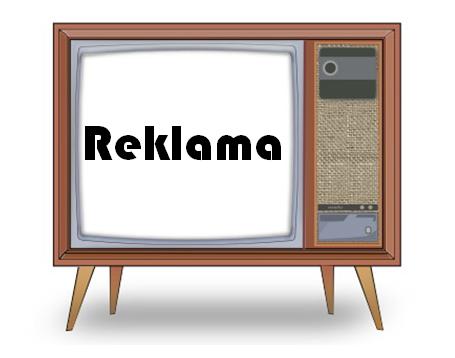
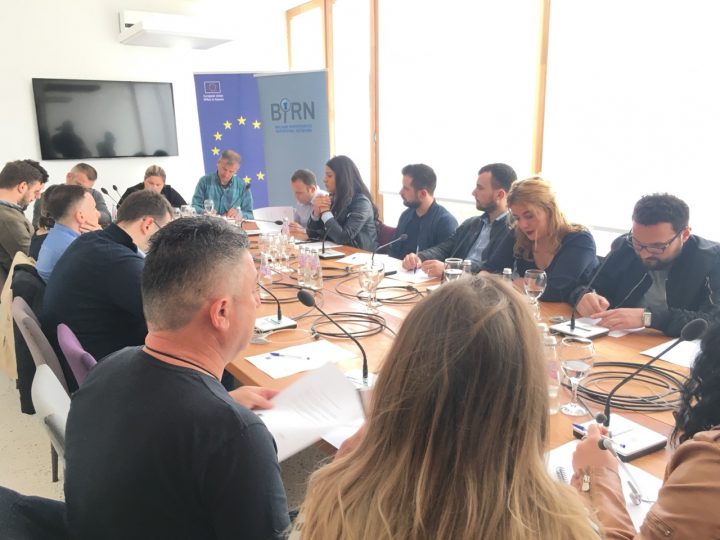
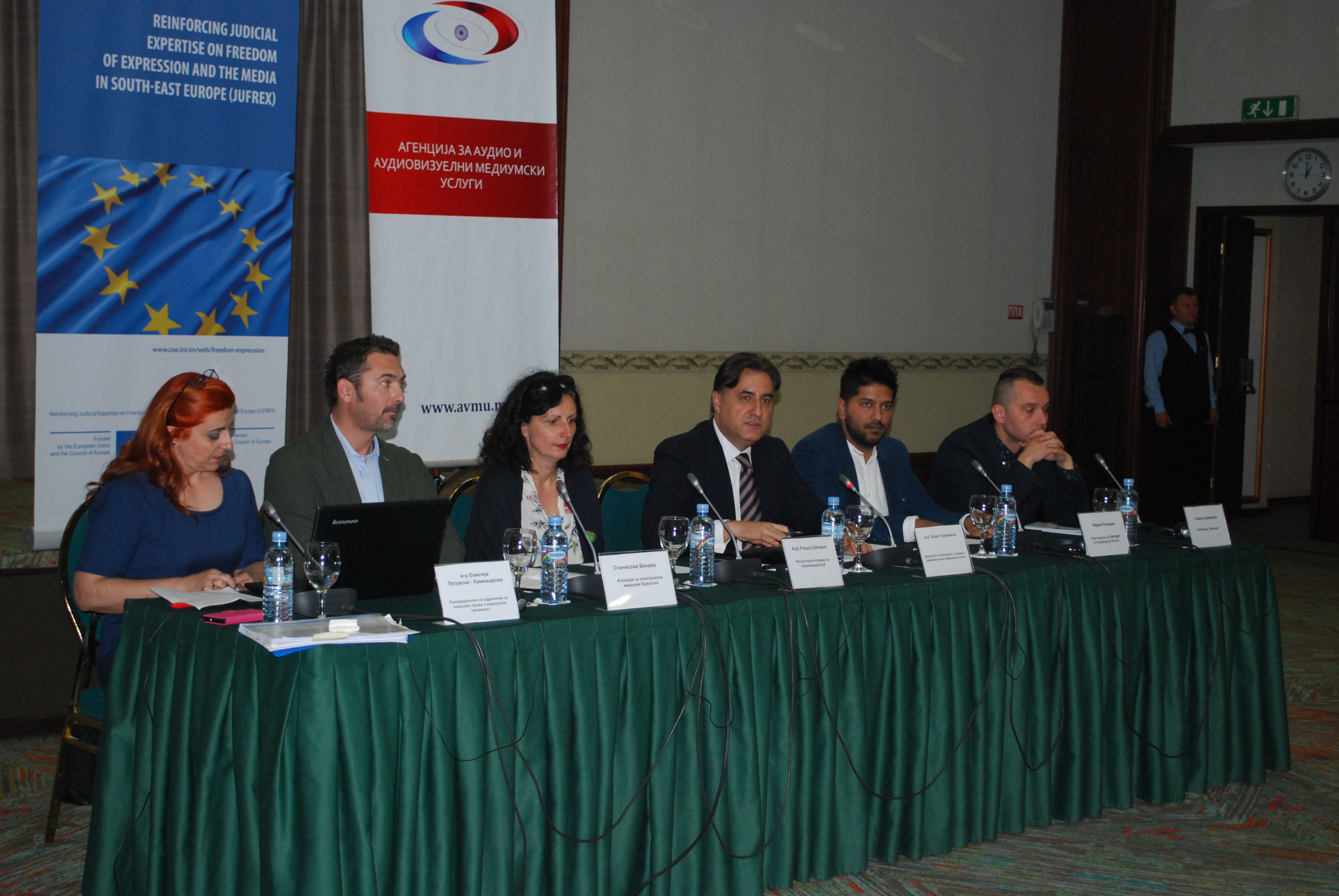
 Also discussed at the Conference were the stereotypes, discrimination and hate speech against the Roma and the members of the LGBTI community. The President of the “Education and Media Development Centre for Young Roma – Association 24Vakti”, Mr. Bajram Ramadan, presented the findings of the survey on the way Macedonian media had been reporting on the Roma, contained in a publication titled “A Picture of the Roma: Hate Speech, Anti-Ziganism and the Media”, while Mr. Slavco Dimitrov of the “Margini” Coalition presented the results of the survey into audience’ standpoints regarding the depiction of LGBTI members in the radio and television programmes, which was a result of the cooperation between the Coalition and the Agency.
Also discussed at the Conference were the stereotypes, discrimination and hate speech against the Roma and the members of the LGBTI community. The President of the “Education and Media Development Centre for Young Roma – Association 24Vakti”, Mr. Bajram Ramadan, presented the findings of the survey on the way Macedonian media had been reporting on the Roma, contained in a publication titled “A Picture of the Roma: Hate Speech, Anti-Ziganism and the Media”, while Mr. Slavco Dimitrov of the “Margini” Coalition presented the results of the survey into audience’ standpoints regarding the depiction of LGBTI members in the radio and television programmes, which was a result of the cooperation between the Coalition and the Agency.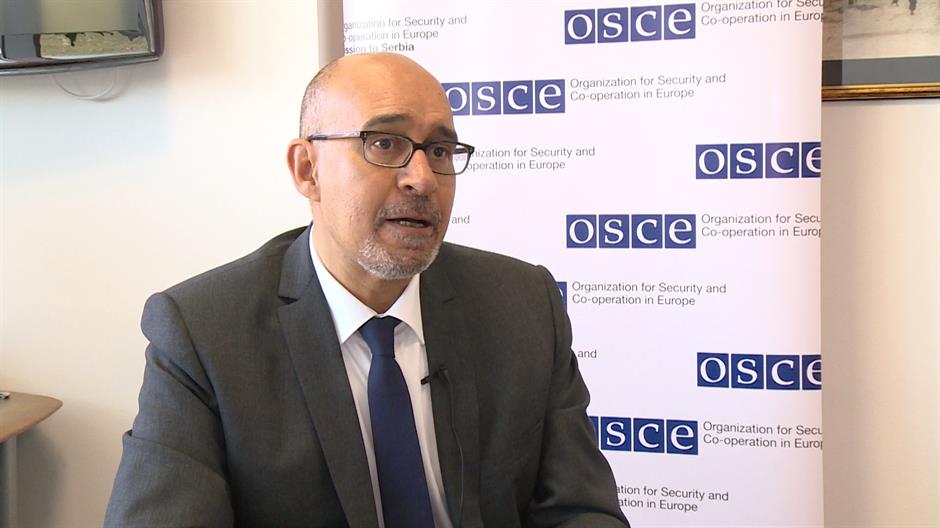
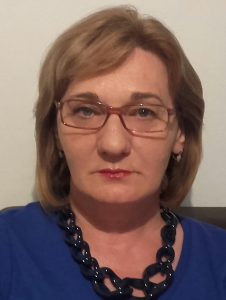
 This article has been produced as a part of the project Western Balkan’s Regional Platform for advocating media freedom and journalists’ safety with the financial assistance of the European Union. The contents of this article are the sole responsibility of the BH journalists Association and its authors, and can in no circumstances be regarded as reflecting the position of the European Union.
This article has been produced as a part of the project Western Balkan’s Regional Platform for advocating media freedom and journalists’ safety with the financial assistance of the European Union. The contents of this article are the sole responsibility of the BH journalists Association and its authors, and can in no circumstances be regarded as reflecting the position of the European Union.
